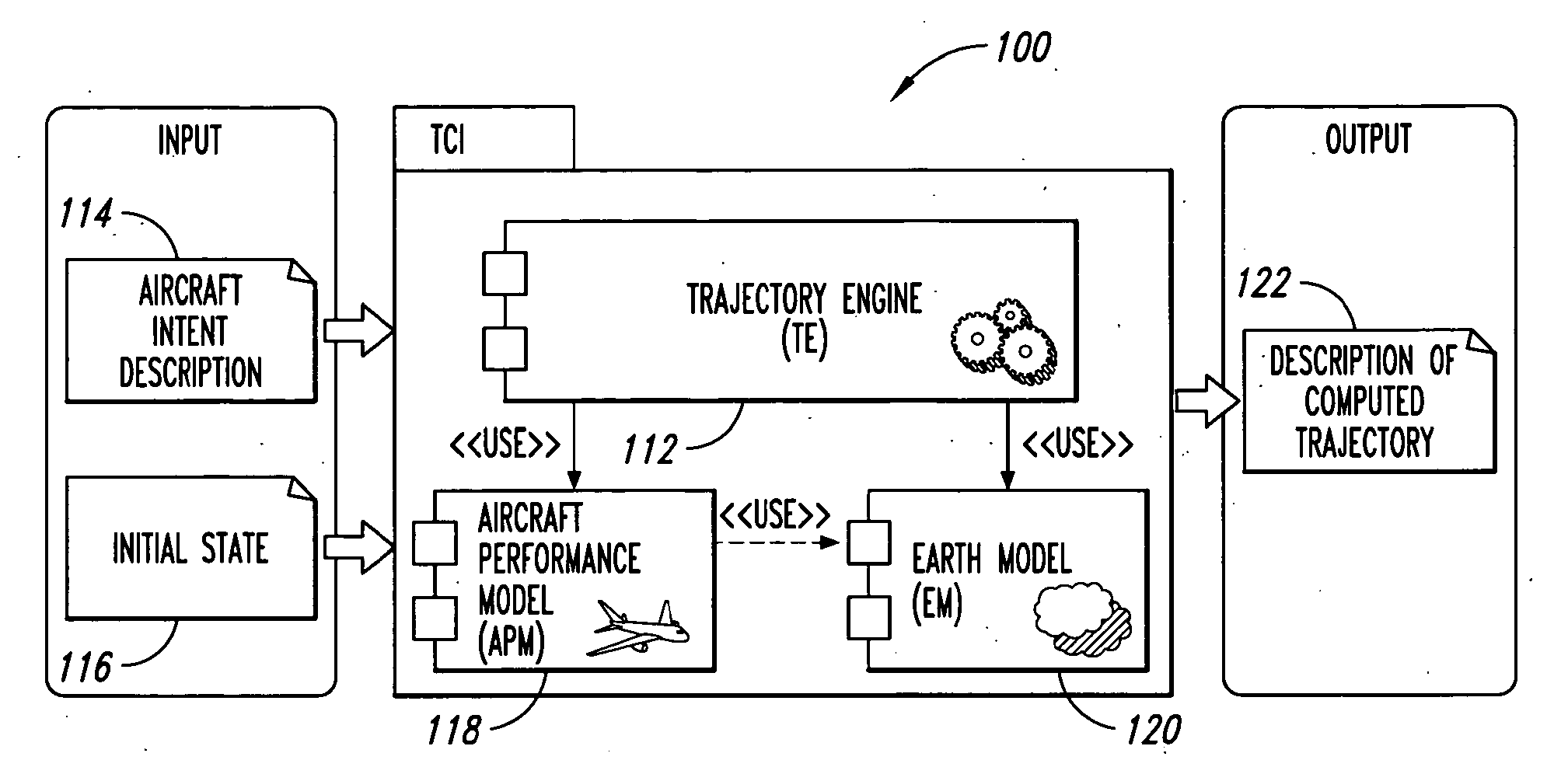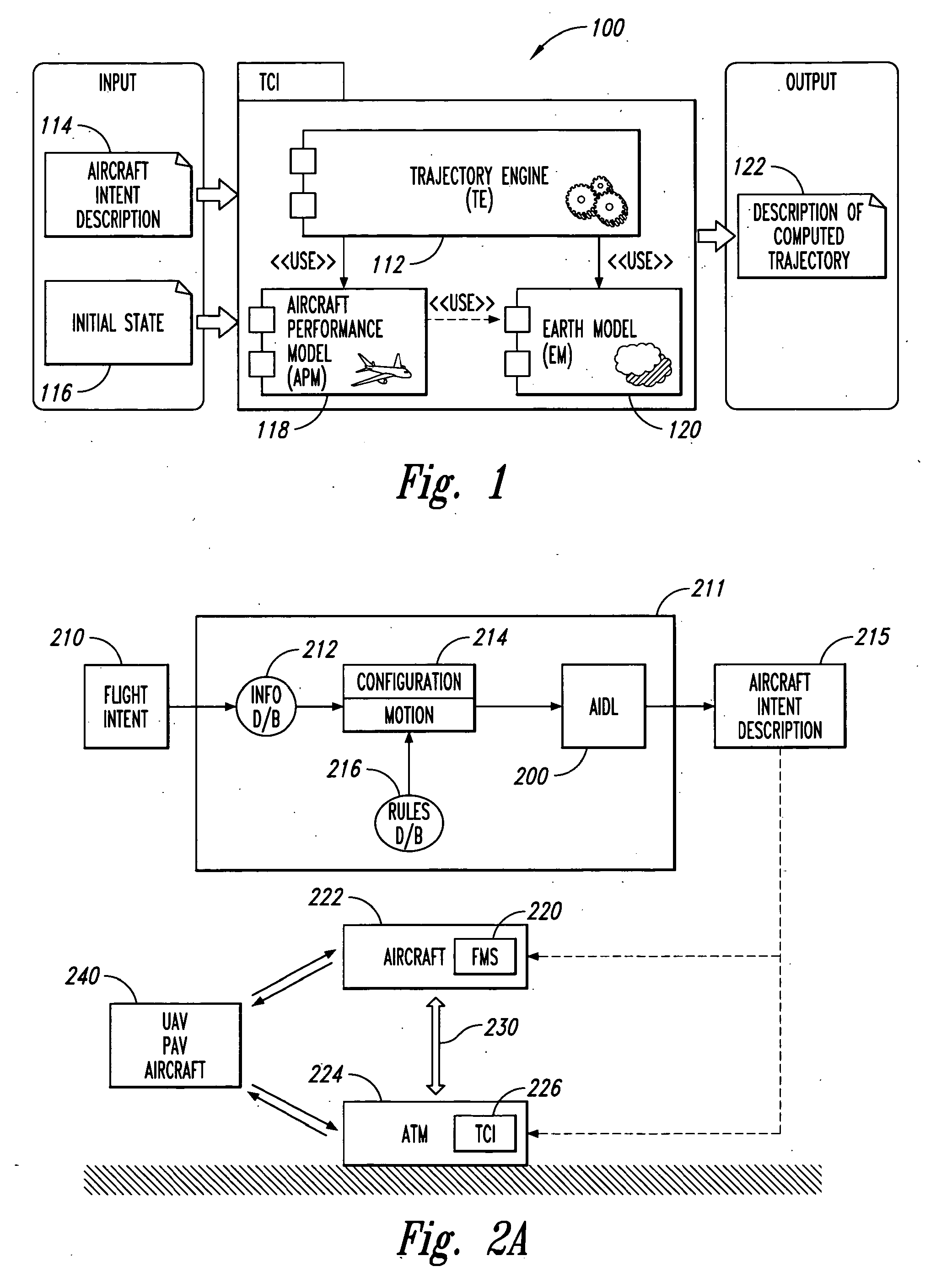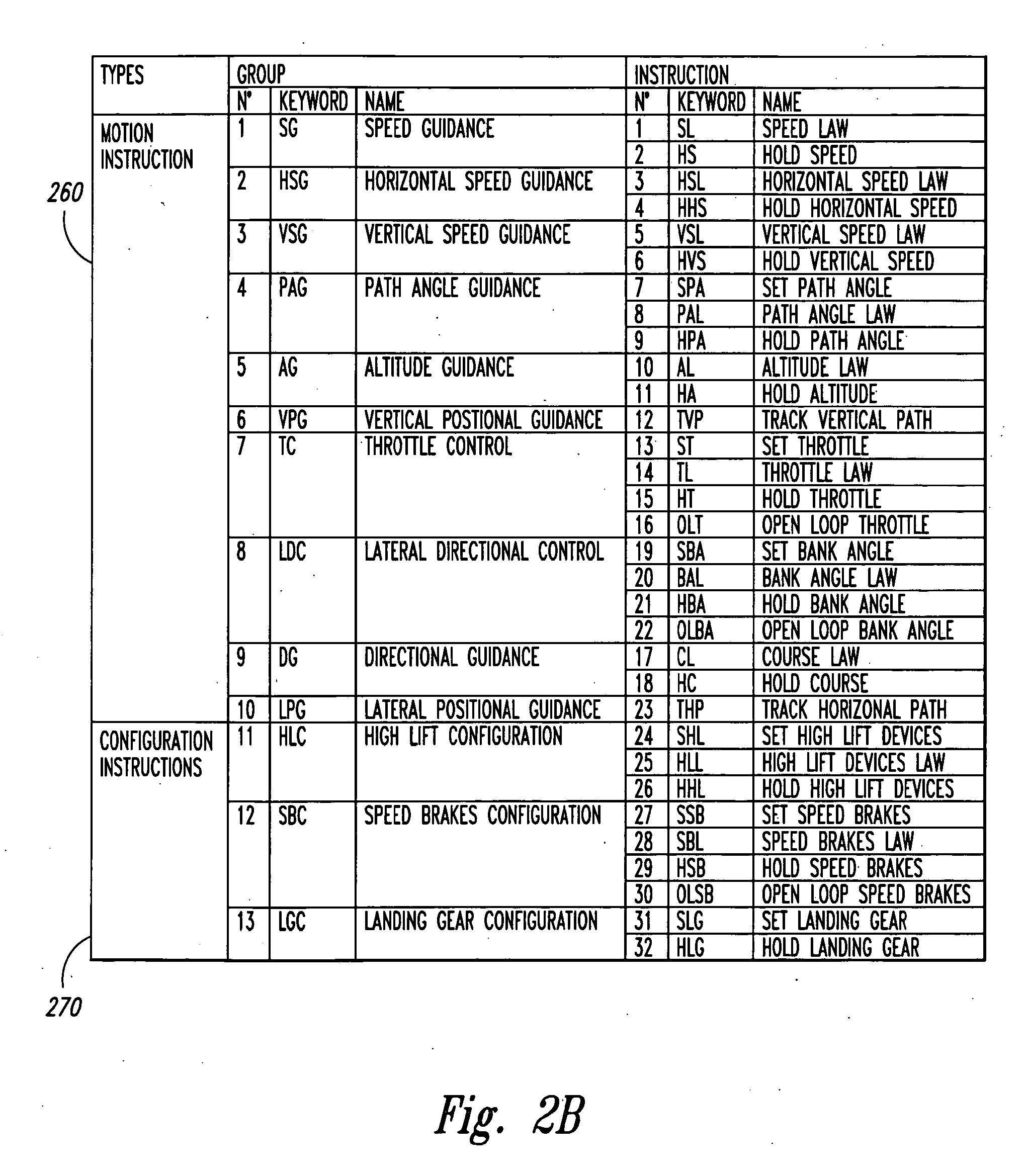Predicting aircraft trajectory
a technology for aircraft and trajectory, applied in the direction of process and machine control, instruments, navigation instruments, etc., can solve the problems of limited computing power, lack of commonality, and limited accuracy of these applications
- Summary
- Abstract
- Description
- Claims
- Application Information
AI Technical Summary
Benefits of technology
Problems solved by technology
Method used
Image
Examples
Embodiment Construction
[0032]A trajectory computation infrastructure 100 is shown in FIG. 1, and this infrastructure has been described above. In summary, a trajectory engine 112 takes as inputs an aircraft intent description 114 and a description of the initial state 116 of the aircraft, and uses an aircraft performance model 118 and an Earth model 120 to provide a description of the computed trajectory 122 as an output. The trajectory computation infrastructure may be air-based or land-based.
[0033]A preferred embodiment is shown in FIG. 2A that shows a computer-implemented 211 method of providing a description of aircraft intent expressed using a formal language 200, the method comprising: receiving information 210 defining how an aircraft 222 is to be flown during a time interval, and storing the information in an information database 212; deriving from the information stored a set of instructions 214, wherein the set of instructions comprise configuration instructions that describe the aerodynamic con...
PUM
 Login to View More
Login to View More Abstract
Description
Claims
Application Information
 Login to View More
Login to View More - R&D
- Intellectual Property
- Life Sciences
- Materials
- Tech Scout
- Unparalleled Data Quality
- Higher Quality Content
- 60% Fewer Hallucinations
Browse by: Latest US Patents, China's latest patents, Technical Efficacy Thesaurus, Application Domain, Technology Topic, Popular Technical Reports.
© 2025 PatSnap. All rights reserved.Legal|Privacy policy|Modern Slavery Act Transparency Statement|Sitemap|About US| Contact US: help@patsnap.com



